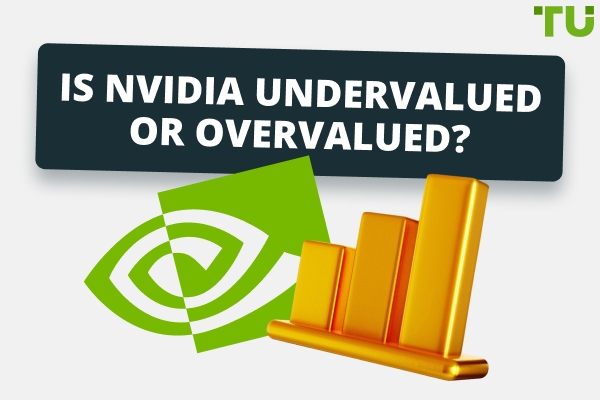
Where Does M1 Finance Legally Operate?
M1 Finance is licensed to operate within the regulatory framework of the United States. Its operation cut across the 50 states within the U.S., in compliance with financial rules stipulated by federal and state-level Authority. It does not hold a license to operate outside the U.S.
M1 Finance is a platform that offers an innovative blend of automated investment and financial management services with a customizable portfolio. However, understanding where M1 Finance operates is crucial for users seeking to engage actively with the platform. Therefore, this review explores the legal jurisdiction within which M1 Finance operates, shedding light on its geographical limitations and the regulatory entities that oversee the broker's operation.
-
What is the minimum deposit in M1 Finance?
The minimum initial deposit requirement of M1 Finance is $100 or $500, depending on the account type. However, clients can deposit any amount above $10 for recurring deposits after the initial deposit of $100 or $500.
-
Where does M1 Finance operate?
M1 Finance is headquartered in Chicago, Illinois. It operates primarily in the United States.
-
Is M1 Finance legit?
Yes, M1 Finance is a legitimate investment broker. Users’ assets on the M1 Finance are insured by the Securities Investor Protection Corporation (SIPC).
-
How to start trading with M1 Finance?
To start trading on the M1 Finance platform, you need to sign up for an account, fund your account, create your portfolio, and then specify your investment preferences.
Is M1 Finance regulated?
M1 Finance is a financial broker-dealer with innovative features for personal finance management. It operates in the United States and has its headquarters in Chicago, Illinois. The broker provides a flexible platform that offers users automated investment options, smart borrowing options, and spending options.
M1 Finance offers investors over 6,000 stocks and Exchange-traded Funds (ETFs) to allocate their investment. Besides, it also supports fractional investment shares, which allows users to acquire a small fraction of expensive stocks.
Furthermore, the borrowing feature allows users to borrow at low-interest rates, using their investment portfolios as collateral. On the other hand, the spending feature offers users a cash management service known as M1 Spend. The M1 Spend is a checking account that comes with a debit card.
In addition, M1 Finance, being a versatile innovative fintech platform, is also a regulated financial broker. Besides, it also partnered with various financial institutions to ensure it provides reliable services that guarantee the safety of investors’ assets.
M1 Finance is a member of the Federal Deposit Insurance Corporation (FDIC), an institution that monitors and protects clients’ deposited funds from being lost. Also, M1 Finance is a member of the Securities Investor Protection Corporation (SIPC), which offers users insurance protection for their assets up to $500,000. Additionally, the assets of clients with high-yield savings accounts on M1 Finance are insured by the Federal Deposit Insurance Corporation (FDIC) for up to $5 million.
Available M1 Finance countries
M1 Finance is licensed to operate within the regulatory framework of the United States. Its operation cut across the 50 states within the U.S., in compliance with financial rules stipulated by federal and state-level Authority.
Therefore, to operate an account with M1 Finance, the client must be a U.S. citizen or a permanent resident (Green Card holder) in the U.S. In addition, the M1 Finance platform can also be accessed by U.S. citizens or permanent residents who reside temporarily outside of the United States.
Which country is M1 Finance banned from?
M1 Finance is available only to citizens and permanent residents of the United States. It does not hold a license to operate outside the U.S. and does not accept clients from other countries who are not U.S. citizens.
Is stock trading risky?
Stock trading can be risky. The stock market is a complex industry controlled by various factors, including company performance, market speculation, economic conditions, and geopolitical events. These factors determine the trend directions, market volatility, and fluctuations of individual stocks, making stock trading risky.
Nevertheless, stock trading is one of the most financially rewarding ventures, especially with good research and risk management skills. Here are some tips for minimizing risks while trading in the stock market:
-
Diversification: Diversify your portfolio across different assets to mitigate the overall impact of one poor-performing investment on your portfolio. Besides, it also helps you to profit from other stocks performing well.
-
Risk Tolerance: Understand your risk tolerance before making investment decisions. Generally, the rule is to risk what you’re comfortable losing.
-
Stop-Loss Orders: Use stop-loss orders to mitigate the chance of losing big to a bad investment decision. Set a predetermined price to exit your trade position should the market go against your analysis.
-
Risk-Reward Ratio: Consider the potential risk-reward ratio of an investment before committing to your finances. In other words, ensure the potential reward outweighs the risk before making an investment decision.
-
Long-Term Perspective: Finally, you can apportion part of the portfolio for long-term investment stocks. This practice can help reduce impulsive investment decisions from short-term market volatility and can also be instrumental in maximizing potential bigger profits from long-term stocks that perform well.
Team that worked on the article
Joshua Francis is a professional Forex trader with 4+ years of experience in the financial industry. He trades the XAU/USD and GBP/JPY pairs. He is also a ghostwriter and author for Indicatorspot and Traders Union, where he puts his intensive research skills and deep knowledge of the financial markets into freelance writing.
Dr. BJ Johnson is a PhD in English Language and an editor with over 15 years of experience. He earned his degree in English Language in the U.S and the UK. In 2020, Dr. Johnson joined the Traders Union team. Since then, he has created over 100 exclusive articles and edited over 300 articles of other authors.
Mirjan Hipolito is a journalist and news editor at Traders Union. She is an expert crypto writer with five years of experience in the financial markets. Her specialties are daily market news, price predictions, and Initial Coin Offerings (ICO).












